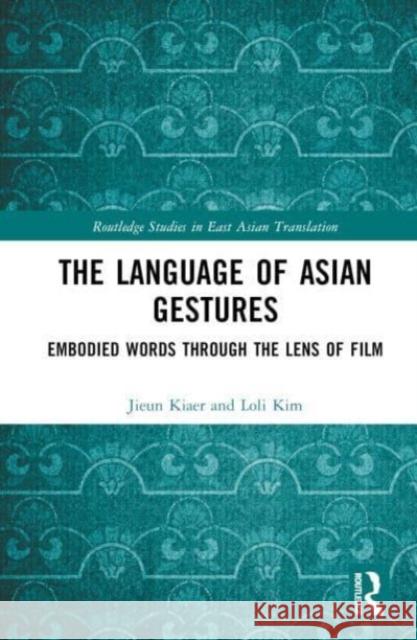The Language of Asian Gestures » książka
topmenu
The Language of Asian Gestures
ISBN-13: 9781032331621 / Twarda / 2024 / 216 str.
The Language of Asian Gestures
ISBN-13: 9781032331621 / Twarda / 2024 / 216 str.
cena 756,05 zł
(netto: 720,05 VAT: 5%)
Najniższa cena z 30 dni: 654,86 zł
(netto: 720,05 VAT: 5%)
Najniższa cena z 30 dni: 654,86 zł
Termin realizacji zamówienia:
ok. 16-18 dni roboczych.
ok. 16-18 dni roboczych.
Darmowa dostawa!
The Language of Asian Gestures explores Asian gestures as a non-verbal language within the context of films and dramas.











